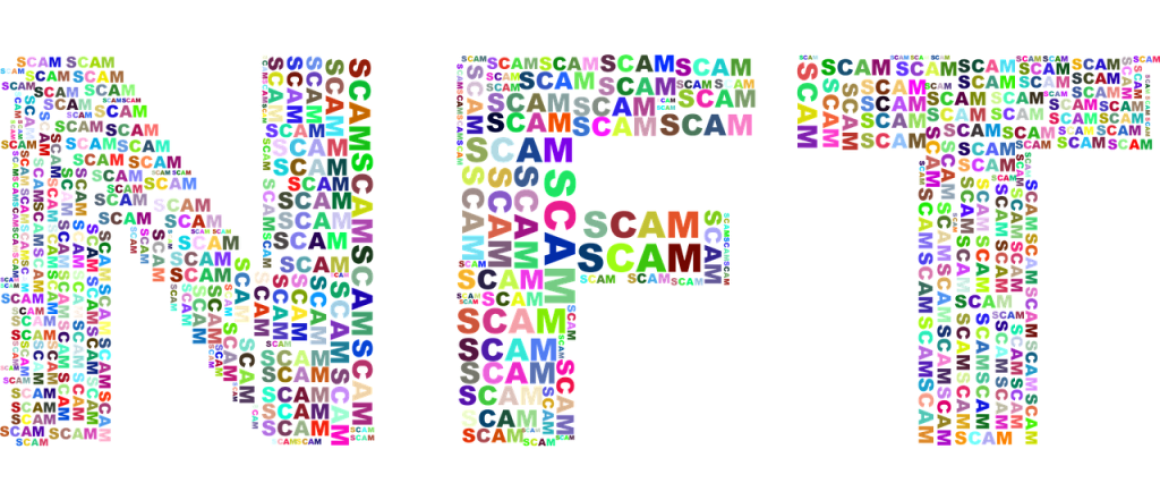Challenges and Risks associated with NFTs
Non-Fungible tokens are currently very profitable for digital creators with plenty of artworks sold online every day. It is even possible for a creator to earn millions in just a few seconds when their NFT is sold in the digital space. It is also visible that people are more enthusiastically buying, selling, and investing in safe crypto storage in the digital market rather than doing the same in the physical market. However, is this burgeoning market totally risk-free and immune to any adverse impact? The short answer is no, as multiple factors pose a very real challenge to how NFTs function in the long run. We will discuss what these factors are and their potential effects in this blog.
Smart Contract Risks and NFT Maintenance
The risk of smart contracts and NFT maintenance is an important one currently prevailing in the NFT market. There are several scenarios where hackers attack a DeFi (Decentralized Finance) network and steal a large amount of crypto. Recently, the most-renowned DeFi protocol named Poly Network was attacked by hackers, and $600 million were stolen in this NFT theft. The reason behind that theft was because smart contract security wasn’t adequate and the hackers successfully exploited the smart contracts flaws to perform a large-scale attack. The Poly network is very useful for swapping tokens on different blockchain networks. This reinforces the importance of secure cold wallet collectibles and tells us that if smart contracts have even a tiny flaw, it is not completely secure.
Environmental Impact
One of the formidable NFT challenges comes in the form of the environmental impact of minting NFTs. The example of one of the most prominent crypto art transactions in recent times points to a collection of short films by a Canadian music artist known as Grimes. An artist Memo Akten created a now-defunct crypto art carbon footprint calculator. According to the defunct calculator, the whole energy consumption involved in the sale of the video collection of Grimes was radically massive. The amount of energy consumption was almost the same as that of an average EU citizen in a period of more than three decades. Therefore, experts have pointed out the alarming implications of increasing volumes of NFT transactions. So, the need for addressing the issue has to be identified with a focus on developing greener sources of energy.
Seller Tax
Seller tax is also another prominent challenge of NFT, which could affect its growth in the future. Buyers and sellers in the NFT landscape might discover the steep taxes as an undermining factor for joining the NFT revolution. The US government considers the sales of NFTs as just the same as the sale of stocks. Sale of NFTs is considered as a representation of investment profits, thereby implying their dependence on capital gains tax. NFTs are basically collectibles and therefore incur the burden of higher tax rates up to 28% in US. The United Kingdom has also imposed many steps for countering the NFT challenges of uncertainty in taxation. The HM Revenue & Customs or HMRC has issued guidance regarding taxation for cryptocurrencies, recently in 2021.
Intellectual Property Rights
When one is attempting to purchase an NFT from the market, one should check whether the seller actually owns that NFT or not. There have been scenarios where people are posing as sellers while they only have replicas. In these cases, the buyer will only receive the right to use that NFT but not the intellectual property rights. Going through the metadata of the smart contract will provide the terms and conditions for the ownership of that NFT. There should be a rule where the artists can only display NFTs that they own. There have to be new intellectual property rights brought into consideration, like the right to publicity, trademarks, copyrights, and moral rights for decentralized blockchain technology.
Closing Words
Trading of NFTs is likely to be a game changer with many celebrities enthusiastically jumping on to the NFT bandwagon. However, it comes with its own challenges and risks and needs to be carefully analyzed to understand potential impact on finances. With regulatory oversight on NFTs still hazy (there is no legal definition of NFT till date), there is likely to be less regulatory and legal frameworks in this regard which reduces the likelihood of legal recourse in case of disputes. Thus, while looking in terms of risk and reward, NFTs offer both but the management of risk is in our own hands!





